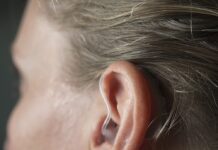
As we age, we notice symptoms creeping up every few months. With women, it’s called menopause and includes many symptoms such as fatigue, forgetfulness, hot flashes, vaginal discomfort or atrophy, decreased libido, irritability and insomnia. Menopause can be surgically induced, as occurs when you get a total hysterectomy.
With men, it’s termed andropause and the symptoms include reduced fatigue, sex drive, weak erections, depression, loss of strength and muscle mass, weight gain as well as occasional night sweats akin to a woman’s hot flash. You might find that you’re less competitive than normal.
In the news recently, there have been some interesting findings reported from brand new studies. The first that comes to mind is about post-menopausal women and how they have an elevated risk for heart failure or coronary heart disease, if they have have higher testosterone levels compared to estradiol (an estrogen hormone).
What about your brain and mood? For sure, psychological symptoms are one of the first (and worst) things noticed by men and women during menopause and andropause. You might think you’re going crazy, and so might those around you. It differs for everyone, and new research suggests that if you’ve been struggling with mental health issues prior to menopause/andropause, they are bound to get worse. In particular, symptoms such as panic attacks and suicidal ideation seem to heighten, and it’s much harder to deal with than typical annoyances such as depression, irritability, mood swings, insomnia and memory loss.
The CDC found that the rate of women committing suicide has been on the rise since the year 2000, it’s up by 50 percent and the average age is between 45 and 64. I have to wonder how many of these people were brought to the brink from the use of mind-bending anxiolytics or antidepressants that are thought to impair otherwise good judgement and possibly raise risk of suicide. It brings to mind fashionista Kate Spade and TV chef Anthony Bourdain, both of whom were taking anti-anxiety medications. They impact your brain and sometimes in a good way, but also in a bad way due to unexpected side effects.
Today, I’d like to offer a few tips that could help you, as a couple, age more comfortably together, and minimize the problems that drive people to doctors, or worse, to psychiatrists who numb you with addictive medications. Here are eight ideas to get your hormones balanced:
- Manage stressful situations
- Avoid estrogenic chemicals
- Maintain a healthy sex life
- Watch what you eat
- Exercise
- Actually, sleep at night
- Get enough rest
- Aswhagandha
If you’d like to read the extended, more comprehensive version of my article, please sign up for my free newsletter at suzycohen.com.






